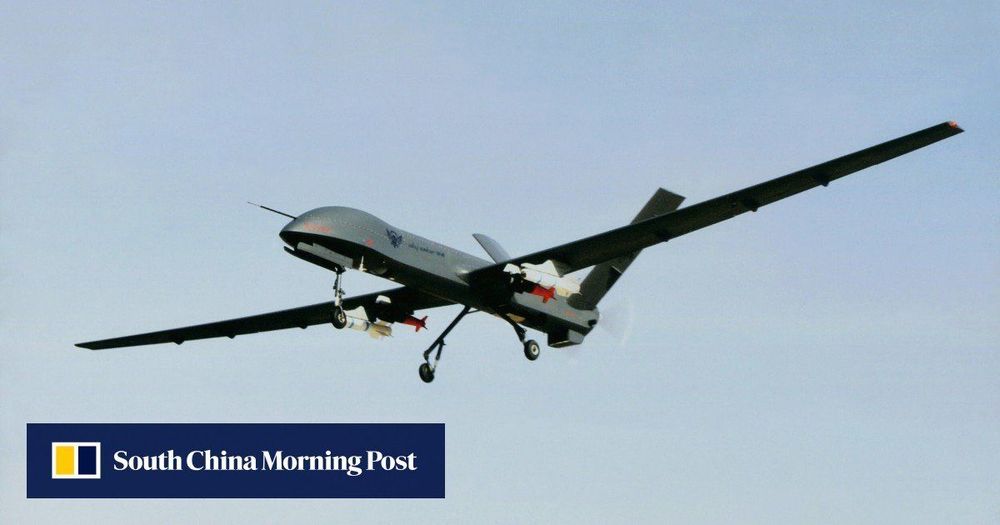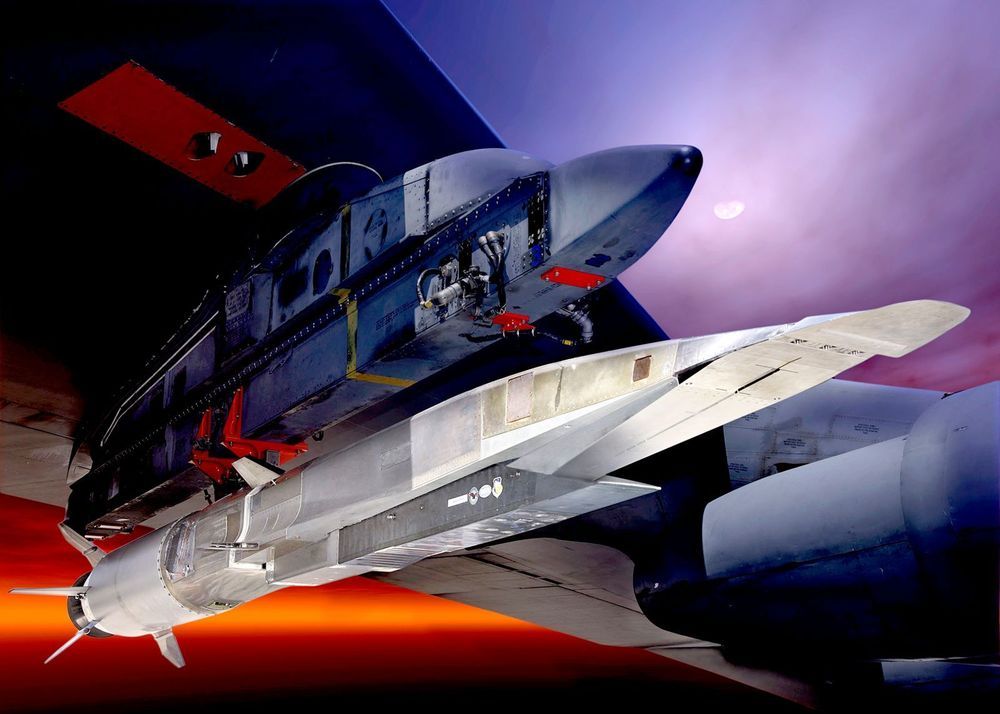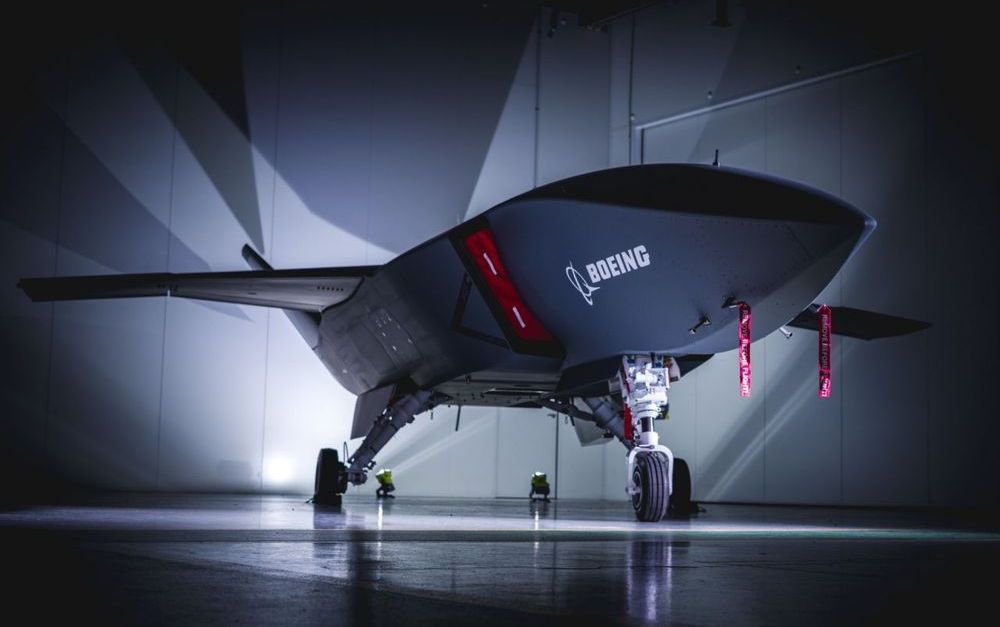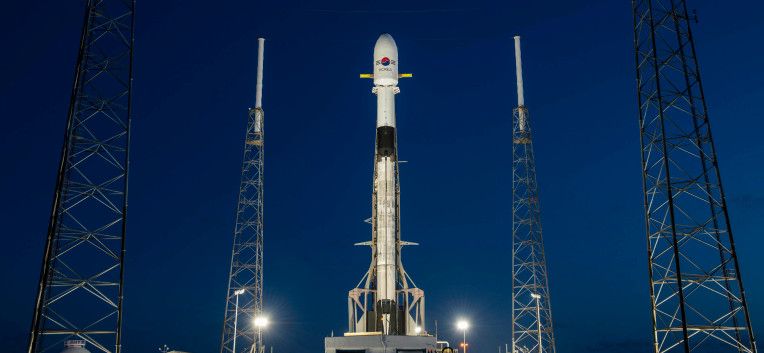South China Sea claimants and other developing countries seeking ways to counter major powers, says report.



The U.S. Air Force on Friday awarded rocket builders United Launch Alliance and SpaceX contracts worth billions to launch national security missions for five years starting in 2022.
The awards represent the second phase of the military’s National Security Space Launch program, which is organized by the Air Force’s Space and Missile Systems Center in Los Angeles, California. Four companies — Elon Musk’s SpaceX, ULA, Northrop Grumman and Jeff Bezos’ Blue Origin — bid for the contracts, with the military set to spend about $1 billion per year on launches.
The NSSL awards represent nearly three dozen launches, scheduled between 2022 and 2026. ULA won 60% of the launches, and SpaceX won the remaining 40%.

The Chinese Navy is expanding at an incredible pace, rapidly outstripping almost all other navies. A year ago it had no amphibious assault carriers (termed landing helicopter docks). These large helicopter carriers are often the most powerful ships in many navies, and almost all navies want them. Fast forward a year’s time and they will likely have a fleet of them second in size only to the U.S. Navy. And China is building them quicker.
The rapid construction of Chinese Navy (PLAN) warships is hard to keep up with. China’s new Assault Carriers are known as the Type-075 LHD. They have already launched two in the past year. And now images have emerged on Chinese-language social media that, perhaps unwittingly, reveal yet another.
This equates to an assembly time in dry dock of about 6 months. It is difficult to make direct comparisons to the U.S. Navy because the construction approaches vary, and America is not in the same rush. But for context the U.S. Navy’s second America Class assault carrier, USS Tripoli, was laid down in June 2014 and launched in May 2017. 2 years and 10 months later.

The Army is developing a system to allow autonomous ground robots to communicate with soldiers through natural conversations — and, in time, learn to respond to soldier instructions no matter how informal or potentially crass they may be.
Researchers from the U.S. Army Combat Capabilities Development Command’s Army Research Laboratory, working in collaboration with the University of Southern California’s Institute for Creative Technologies, have developed a new capability that allows conversational dialogue between soldiers and autonomous systems.

Hypersonic weapons are the next frontier of great power competition between the United States, Russia, and China. The Army and Navy want to expedite the development of the missile and hope to field it in 2023.
Their latest missile test was a success.
By Caleb Larson
Report Advertisement
The Army recently released footage of their newest hypersonic missile, the Common Hypersonic Glide Body. The missile, jointly developed with the Navy, is intended to provide a measure of deterrence against adversaries, and to preserve America’s battlefield edge, if necessary.



SpaceX is launching South Korea’s first dedicated military communications satellite on Monday, with a target liftoff time of 5 PM EDT (2 PM PDT). The launch window spans nearly four hours, ending at 8:55 PM EDT (5:55 PM PDT), so SpaceX has considerable flexibility in terms of when the launch could actually take place.
The Falcon 9 rocket being used for this mission includes a first-stage booster that flew previously on SpaceX and NASA’s Demo-2 mission — the historic mission that carried astronauts on board a SpaceX rocket for the first time. That launch, which took place on May 30, saw astronauts Bob Behnken and Doug Hurley successfully delivered to the International Space Station — where they’re currently preparing to depart on Demo-2’s concluding trip home on August 1.
This mission will include a recovery attempt for the first stage, using SpaceX’s “Just Read the Instructions” drone landing ship in the Atlantic Ocean.

In December 2019, Donald Trump signed the U.S. Space Force Act, peeling off an orbit-and-beyond branch of the military, much as the Air Force grew out of the Army in the 1940s.
For now, the Space Force still resides within the Air Force, but nearly 90 of this year’s approximately 1000 Air Force Academy graduates became the first officers commissioned straight into the new organization. Some of those graduates were members of an academy group called the Institute for Applied Space Policy and Strategy (IASPS). Featuring weekly speakers and formalized research projects the students hope to turn into peer-reviewed papers, the group aims to game out the policies and philosophies that could guide military space activity when they are old enough to be in charge. In particular, these young cadets are interested in whether the Space Force might someday have a military presence on the Moon, and how it might work with civilians.
That activity could put the Space Force in conflict with scientists, who typically view the cosmos as a peaceful place for inquiry. But part of the club’s mission is speculating about that interplay—between the military and civilian scientists, civil space agencies, and private companies. Cadet J. P. Byrne, who will graduate in 2021, is the group’s current president. He chatted with ScienceInsider about the institute’s work. This interview has been edited for length and clarity.
Q: What does IASPS hope to accomplish?
A: Our main goal is to develop space-minded cadets not just for the Air Force, but also for the Space Force. It’s really important to know how space works, and we like to think we drive the conversation for space information in an unclassified setting.
Q: What, as an Air Force Academy cadet, interests you about space?
A: I actually wanted to be a pilot originally. But going into my junior year, seeing all the developments, I started really enjoying space. You hear this idea of a “new space era” a lot. When I think about that, it reminds me of the early excitement about the powered aircraft of the early 20th century, in that we get to explore ideas that haven’t been thought of yet. A lot of people say it’s human destiny to explore space. To me, it’s more adventuring into the unknown, or at least the less known.
